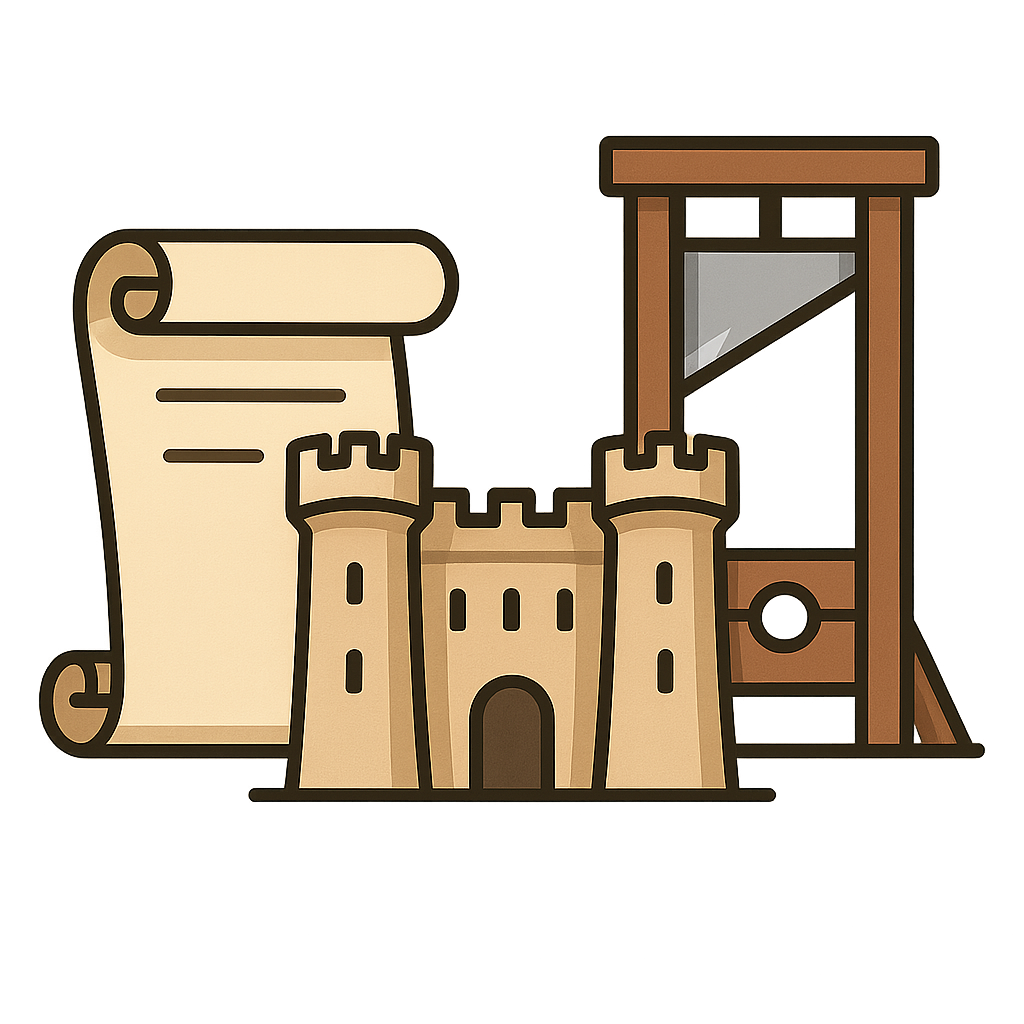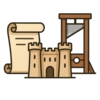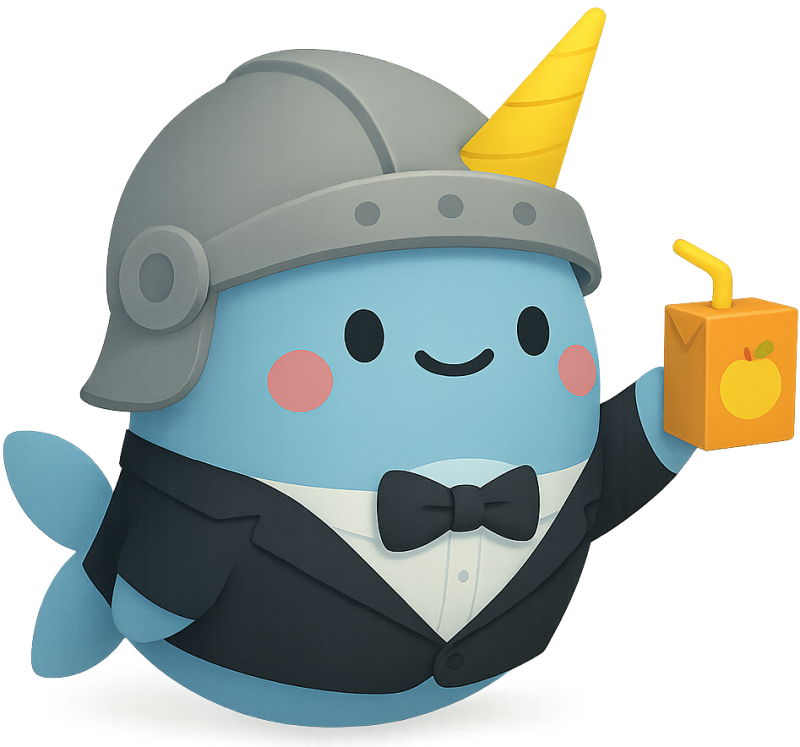A Baker's Boy and the French Revolution
My name is Jean-Luc, and though my back is now bent with age and my hands are dusted with the flour of a lifetime, I remember a time when I was a young boy with eyes wide open, living in the heart of Paris. My world was the warm, wonderful-smelling universe of my father’s bakery. The day began before dawn, with the scent of yeast and the comforting heat of the ovens. I loved the crackle of a fresh baguette and the soft, pillowy inside of a brioche. Our lives were simple, filled with the hard work of kneading dough and serving our neighbors. But just outside our door was another world. We would see the gilded carriages of the nobility clattering over the cobblestones, carrying lords and ladies in silks and velvets. They lived in a world of glittering palaces and endless feasts, a world so different from ours it might as well have been on the moon. In the bakery, I heard the whispers of the people who came for their daily bread. They spoke of the king, Louis XVI, and his queen, Marie Antoinette, living in unbelievable luxury at the Palace of Versailles. They muttered about the unfair taxes that made everything, even the salt we used for our bread, impossibly expensive. Hunger was a real fear for many of our customers. A feeling began to grow in the city, a low rumble like distant thunder on a hot summer day. It was a feeling that things were not right, that they were not fair. I was just a boy, but even I could feel it in the air. Something was about to change forever.
That rumble grew into a storm in the summer of 1789. The streets of Paris, usually filled with the sounds of merchants and horses, were now buzzing with an electric energy. People gathered on street corners, listening to passionate speakers who spoke of freedom and fairness. There was a feeling of unity I had never experienced before; we were not just bakers, blacksmiths, and seamstresses anymore. We were the people of France, and we were finding our voice. The tension peaked in the days leading up to July 14th. The king had dismissed a popular minister, and we all feared his soldiers would march into the city to silence us. But fear was being replaced by a powerful sense of determination. On the morning of July 14th, the church bells began to ring all across Paris, not for service, but as a call to action. From a window above our bakery, I watched as a great river of people flowed through the streets. They were marching toward the Bastille, a massive, grim stone fortress that loomed over our neighborhood. The Bastille was more than a prison; it was a symbol of the king’s absolute power, a place where people could be locked away without a trial. The noise was deafening—shouts, chants, and the sound of thousands of marching feet. I felt a tremor of fear, but it was overshadowed by an incredible sense of hope. Hours later, a roar went up from the crowd that shook the entire city. The Bastille had fallen. People began wearing ribbons of red, white, and blue—the tricolor cockade. It was a symbol that a new day had dawned for France.
In the weeks that followed, the revolution was not just about a fallen fortress; it was about building something new in its place. One afternoon in late August, I stood in a crowded square and listened as a man read aloud from a document called the 'Declaration of the Rights of Man and of the Citizen.' The words washed over me like a revelation. It said that all men are born and remain free and equal in rights. To a baker’s boy who had always been taught to bow to the nobility, this idea was breathtaking. It meant that my life, my father’s life, had the same value as that of any duke or prince. The motto of our new France became 'Liberté, Égalité, Fraternité'—Liberty, Equality, Fraternity. These were not just words; they were a promise. We saw changes everywhere. Statues of kings were taken down. Streets named after saints and nobles were given new names, like 'Revolution Square.' We began to call each other 'Citizen' and 'Citizeness,' simple words that carried a powerful meaning: we were all equals, all part of the same nation. I will not pretend that the years that followed were easy. Creating a new country was far more difficult and messy than we ever imagined. There was confusion, fear, and disagreement. But through all the difficult times, we held onto the dream that was born in 1789—the dream of a nation where every person, no matter how humble their birth, could stand tall and free.
Now, as an old man looking back, I see the long shadow our revolution cast. Our path was filled with struggle and sorrow, but we ignited a fire that changed the world. We showed that a government must listen to its people and that fairness is not a gift to be given by a king, but a right to be demanded by its citizens. The ideas we fought for—liberty, equality, and the right of people to govern themselves—traveled far beyond the borders of France, inspiring others to question and to dream. We proved that ordinary people, when they stand together, possess extraordinary power. Remember my story, and know that your voice matters. Believing in a better, fairer world and having the courage to speak up for it is the most powerful force for change there is. It is a legacy that belongs to everyone, and it is a legacy of hope.
Reading Comprehension Questions
Click to see answer



